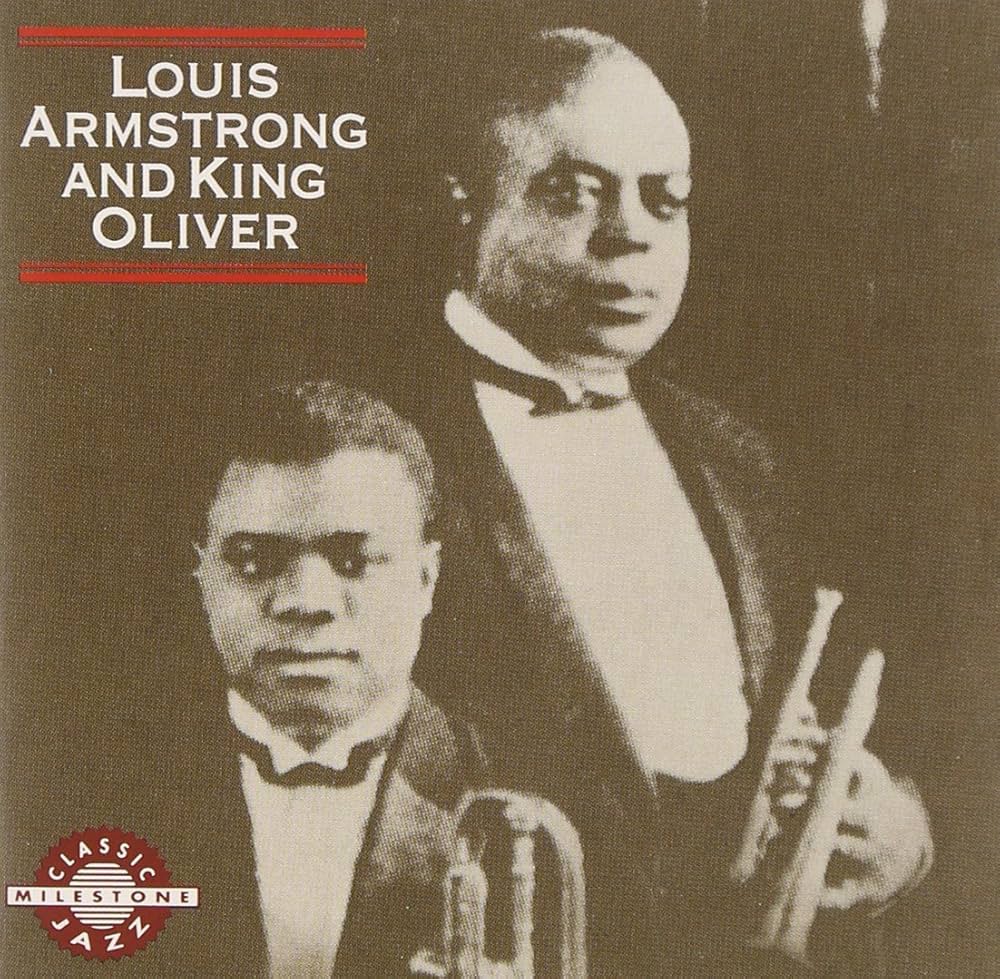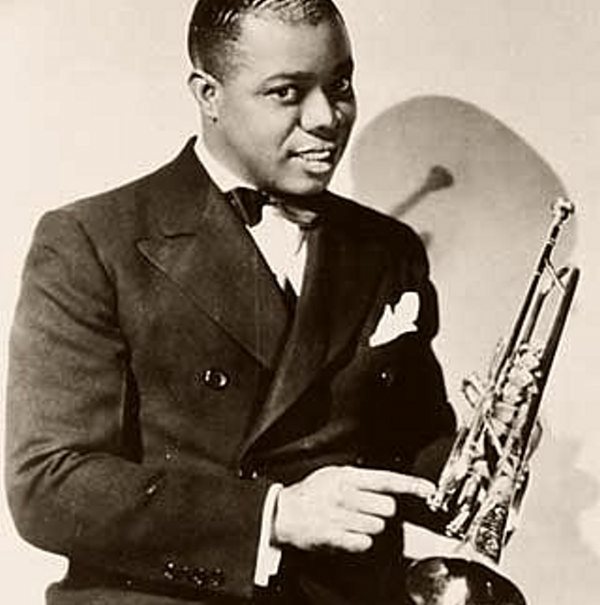Joseph Oliver, also known as “King” is a pioneering figure in the world of jazz, left an indelible mark on American music history with his innovative cornet playing and influential band leadership. Born on December 19, 1881, in Louisiana, Oliver rose to prominence in the early 1900s, becoming a key figure in the development of jazz in Chicago14.
The Rise of King Oliver’s Creole Jazz Band
In 1922, Oliver formed his most famous ensemble, King Oliver’s Creole Jazz Band, which debuted at the Lincoln Gardens Café in Chicago on June 174. This group would go on to revolutionize jazz music and set the standard for future generations of musicians2.
The band’s lineup was a who’s who of early jazz talent:
- Joseph “King” Oliver – cornet
- Louis Armstrong – second cornet
- Johnny Dodds – clarinet
- Honoré Dutrey – trombone
- Lil Hardin – piano
- Bill Johnson – double bass
- Baby Dodds – drums

Pioneering Recordings and Musical Innovation
Joseph Oliver’s “King” Creole Jazz Band made history by becoming the first black New Orleans ensemble to gain recognition in the record industry4. Their groundbreaking recording sessions in 1923 captured the essence of the New Orleans style, also known as Dixieland, and brought it to a wider audience1.
The band’s recordings were notable for several reasons:
- They were the first extensive series of recordings by African American musicians that are indisputably jazz5.
- They represented the first recordings of a working Black jazz band5.
- The sessions marked the first recordings of a band comprised primarily of Black New Orleans musicians5.
Musical Legacy and Influence
Oliver’s innovative use of mutes and effects on the trumpet had a lasting impact on jazz. His “wa-wa” sound inspired the creation of the Harmon mute, which became widely used in jazz and influenced future generations of trumpeters, including Miles Davis.
The band’s unique style, characterized by collective improvisation and rhythmic vitality, captivated audiences and fellow musicians alike. Their double-cornet breaks, featuring Oliver and Armstrong improvising in perfect unison, became legendary4.
Joseph Oliver’s Creole Jazz Band made several key contributions to jazz history:

- Pioneering recordings: The band’s 1923 recording sessions for Gennett Records were groundbreaking, representing the first extensive series of recordings by African American musicians that are indisputably jazz12. These recordings captured the essence of the New Orleans style, also known as Dixieland, and brought it to a wider audience.
- Influential ensemble style: The band was considered the best of the early ensemble-style jazz bands, demonstrating the New Orleans style of collective improvisation14. Their unique approach, characterized by polyphonic ensemble playing, set a standard for future jazz musicians.
- Popularization of jazz: King Oliver played an instrumental role in popularizing jazz outside of New Orleans, particularly in Chicago where the band was based13. Their performances at venues like Lincoln Gardens helped spread the genre to new audiences.
- Technical innovations: Oliver pioneered the use of mutes in jazz, including the rubber plumber’s plunger, derby hat, bottles, and cups2. His famous “wa-wa” effect, created using a Conn metal mute, became influential in jazz trumpet playing.
- Launching pad for Louis Armstrong: The band featured a young Louis Armstrong on second cornet, marking his recording debut and providing a platform for his early development as a jazz musician25. This association would prove crucial in Armstrong’s rise to prominence.
- Influential recordings: The band’s 1923 recordings, including classics like “Dippermouth Blues,” “Canal Street Blues,” and “Snake Rag,” are considered milestones in early jazz history12. These recordings continue to be studied and celebrated by jazz enthusiasts and historians.
- Bridge between eras: King Oliver and his band served as a vital link between the semi-mythical prehistory of jazz and the firmly documented history of jazz proper6, helping to establish the genre’s foundations and pave the way for its future development.
Conclusion
Joseph Oliver’s Creole Jazz Band played a crucial role in shaping the sound of early jazz and bringing this uniquely American art form to national prominence. Their innovative recordings and electrifying live performances set the stage for the jazz age and influenced countless musicians who followed in their footsteps. Oliver’s legacy as a bandleader, mentor, and pioneering cornetist continues to resonate in the world of jazz today.


